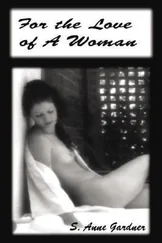Alice Munro - The Love Of A Good Woman
Здесь есть возможность читать онлайн «Alice Munro - The Love Of A Good Woman» весь текст электронной книги совершенно бесплатно (целиком полную версию без сокращений). В некоторых случаях можно слушать аудио, скачать через торрент в формате fb2 и присутствует краткое содержание. Жанр: Современная проза, на английском языке. Описание произведения, (предисловие) а так же отзывы посетителей доступны на портале библиотеки ЛибКат.
- Название:The Love Of A Good Woman
- Автор:
- Жанр:
- Год:неизвестен
- ISBN:нет данных
- Рейтинг книги:4 / 5. Голосов: 1
-
Избранное:Добавить в избранное
- Отзывы:
-
Ваша оценка:
- 80
- 1
- 2
- 3
- 4
- 5
The Love Of A Good Woman: краткое содержание, описание и аннотация
Предлагаем к чтению аннотацию, описание, краткое содержание или предисловие (зависит от того, что написал сам автор книги «The Love Of A Good Woman»). Если вы не нашли необходимую информацию о книге — напишите в комментариях, мы постараемся отыскать её.
The Love Of A Good Woman — читать онлайн бесплатно полную книгу (весь текст) целиком
Ниже представлен текст книги, разбитый по страницам. Система сохранения места последней прочитанной страницы, позволяет с удобством читать онлайн бесплатно книгу «The Love Of A Good Woman», без необходимости каждый раз заново искать на чём Вы остановились. Поставьте закладку, и сможете в любой момент перейти на страницу, на которой закончили чтение.
Интервал:
Закладка:
And all the time how many thought that she was a fool? The people she spent her labors on might secretly despise her. Thinking they’d never do the same in her place. Never be fool enough. No.
Miserable offenders, came into her head. Miserable offenders. Restore them that are penitent.
So she got up and went to work; as far as she was concerned, that was the best way to be penitent. She worked very quietly but steadily through the night, washing the cloudy glasses and sticky plates that were in the cupboards and establishing order where there was none before. None. Teacups had sat between the ketchup and the mustard and toilet paper on top of a pail of honey. There was no waxed paper or even newspaper laid out on the shelves. Brown sugar in the bag was as hard as rock. It was understandable that things should have gone downhill in the last few months, but it looked as if there had been no care, no organization here, ever. All the net curtains were gray with smoke and the windowpanes were greasy. The last bit of jam had been left to grow fuzz in the jar, and vile-smelling water that had held some ancient bouquet had never been dumped out of its jug. But this was a good house still, that scrubbing and painting could restore. Though what could you do about the ugly brown paint that had been recently and sloppily applied to the front-room floor?
When she had a moment later in the day she pulled the weeds out of Rupert’s mother’s flower beds, dug up the burdocks and twitch grass that were smothering the valiant perennials.
She taught the children to hold their spoons properly and to say grace.
Thank you for the world so sweet,
Thank you for the food we eat…
She taught them to brush their teeth and after that to say their prayers.
“God bless Mama and Daddy and Enid and Aunt Olive and Uncle Clive and Princess Elizabeth and Margaret Rose.” After that each added the name of the other. They had been doing it for quite a while when Sylvie said, “What does it mean?”
Enid said, “What does what mean?”
“What does it mean ‘God bless’?”
Enid made eggnogs, not flavoring them even with vanilla, and fed them to Mrs. Quinn from a spoon. She fed her a little of the rich liquid at a time, and Mrs. Quinn was able to hold down what was given to her in small amounts. If she could not do that, Enid spooned out flat, lukewarm ginger ale.
The sunlight, or any light, was as hateful as noise to Mrs. Quinn by now. Enid had to hang thick quilts over the windows, even when the blinds were pulled down. With the fan shut off, as Mrs. Quinn demanded, the room became very hot, and sweat dripped from Enid’s forehead as she bent over the bed attending to the patient. Mrs. Quinn went into fits of shivering; she could never be warm enough.
“This is dragging out,” the doctor said. “It must be those milkshakes you’re giving her, keeping her going.” “Eggnogs,” said Enid, as if it mattered.
Mrs. Quinn was often now too tired or weak to talk. Sometimes she lay in a stupor, with her breathing so faint and her pulse so lost and wandering that a person less experienced than Enid would have taken her for dead. But at other times she rallied, wanted the radio on, then wanted it off. She knew perfectly well who she was still, and who Enid was, and she sometimes seemed to be watching Enid with a speculative or inquiring look in her eyes. Color was long gone from her face and even from her lips, but her eyes looked greener than they had in the past-a milky, cloudy green. Enid tried to answer the look that was bent on her.
“Would you like me to get a priest to talk to you?”
Mrs. Quinn looked as if she wanted to spit.
“Do I look like a Mick?” she said.
“A minister?” said Enid. She knew this was the right thing to ask, but the spirit in which she asked it was not right-it was cold and faintly malicious.
No. This was not what Mrs. Quinn wanted. She grunted with displeasure. There was some energy in her still, and Enid had the feeling that she was building it up for a purpose. “Do you want to talk to your children?” she said, making herself speak compassionately and encouragingly. “Is that what you want?”
No.
“Your husband? Your husband will be here in a little while.”
Enid didn’t know that for sure. Rupert arrived so late some nights, after Mrs. Quinn had taken the final pills and gone to sleep. Then he sat with Enid. He always brought her the newspaper. He asked what she wrote in her notebooks-he noticed that there were two-and she told him. One for the doctor, with a record of blood pressure and pulse and temperature, a record of what was eaten, vomited, excreted, medicines taken, some general summing up of the patient’s condition. In the other notebook, for herself, she wrote many of the same things, though perhaps not so exactly, but she added details about the weather and what was happening all around. And things to remember.
“For instance, I wrote something down the other day,” she said. “Something that Lois said. Lois and Sylvie came in when Mrs. Green was here and Mrs. Green was mentioning how the berry bushes were growing along the lane and stretching across the road, and Lois said, ‘It’s like in “Sleeping Beauty.” ’ Because I’d read them the story. I made a note of that.”
Rupert said, “I’ll have to get after those berry canes and cut them back.”
Enid got the impression that he was pleased by what Lois had said and by the fact that she had written it down, but it wasn’t possible for him to say so.
One night he told her that he would be away for a couple of days, at a stock auction. He had asked the doctor if it was all right, and the doctor had said to go ahead.
That night he had come before the last pills were given, and Enid supposed that he was making a point of seeing his wife awake before that little time away. She told him to go right into Mrs. Quinn’s room, and he did, and shut the door after him. Enid picked up the paper and thought of going upstairs to read it, but the children probably weren’t asleep yet; they would find excuses for calling her in. She could go out on the porch, but there were mosquitoes’at this time of day, especially after a rain like the afternoon’s.
She was afraid of overhearing some intimacy or perhaps the suggestion of a fight, then having to face him when he came out. Mrs. Quinn was building up to a display-of that Enid felt sure. And before she made up her mind where to go she did overhear something. Not the recriminations or (if it was possible) the endearments, or perhaps even weeping, that she had been half expecting, but a laugh. She heard Mrs. Quinn weakly laughing, and the laughter had the mockery and satisfaction in it that Enid had heard before but also something she hadn’t heard before, not in her life-something deliberately vile. She didn’t move, though she should have, and she was at the table still, she was still there staring at the door of the room, when he came out a moment later. He didn’t avoid her eyes-or she his. She couldn’t. Yet she couldn’t have said for sure that he saw her. He just looked at her and went on outside. He looked as if he had caught hold of an electric wire and begged pardon-who of?-that his body was given over to this stupid catastrophe.
The next day Mrs. Quinn’s strength came flooding back, in that unnatural and deceptive way that Enid had seen once or twice in others. Mrs. Quinn wanted to sit up against the pillows. She wanted the fan turned on.
Enid said, “What a good idea.”
“I could tell you something you wouldn’t believe,” Mrs. Quinn said.
“People tell me lots of things,” said Enid. “Sure. Lies,” Mrs. Quinn said. “I bet it’s all lies. You know Mr. Willens was right here in this room?”
Читать дальшеИнтервал:
Закладка:
Похожие книги на «The Love Of A Good Woman»
Представляем Вашему вниманию похожие книги на «The Love Of A Good Woman» списком для выбора. Мы отобрали схожую по названию и смыслу литературу в надежде предоставить читателям больше вариантов отыскать новые, интересные, ещё непрочитанные произведения.
Обсуждение, отзывы о книге «The Love Of A Good Woman» и просто собственные мнения читателей. Оставьте ваши комментарии, напишите, что Вы думаете о произведении, его смысле или главных героях. Укажите что конкретно понравилось, а что нет, и почему Вы так считаете.












